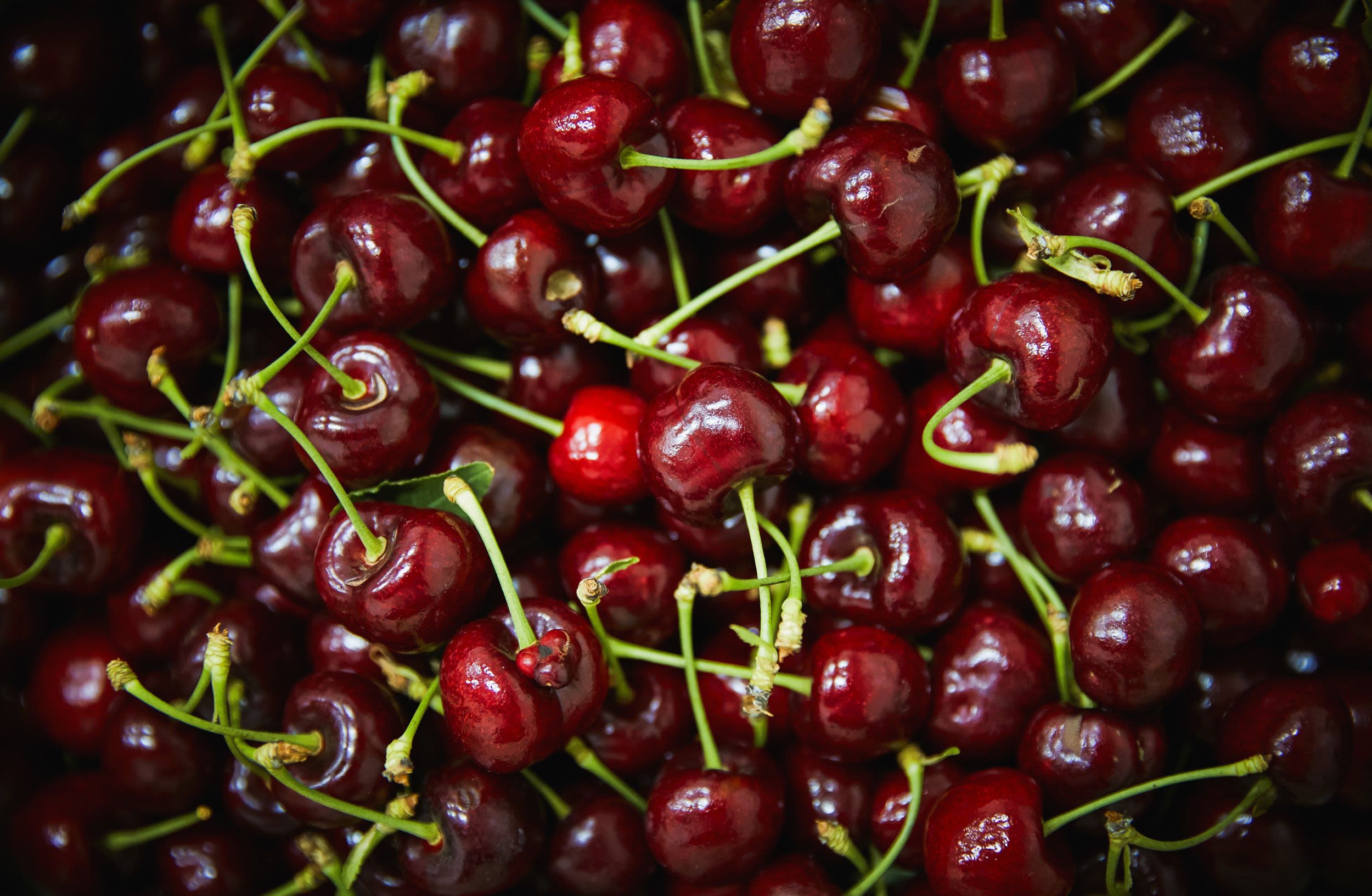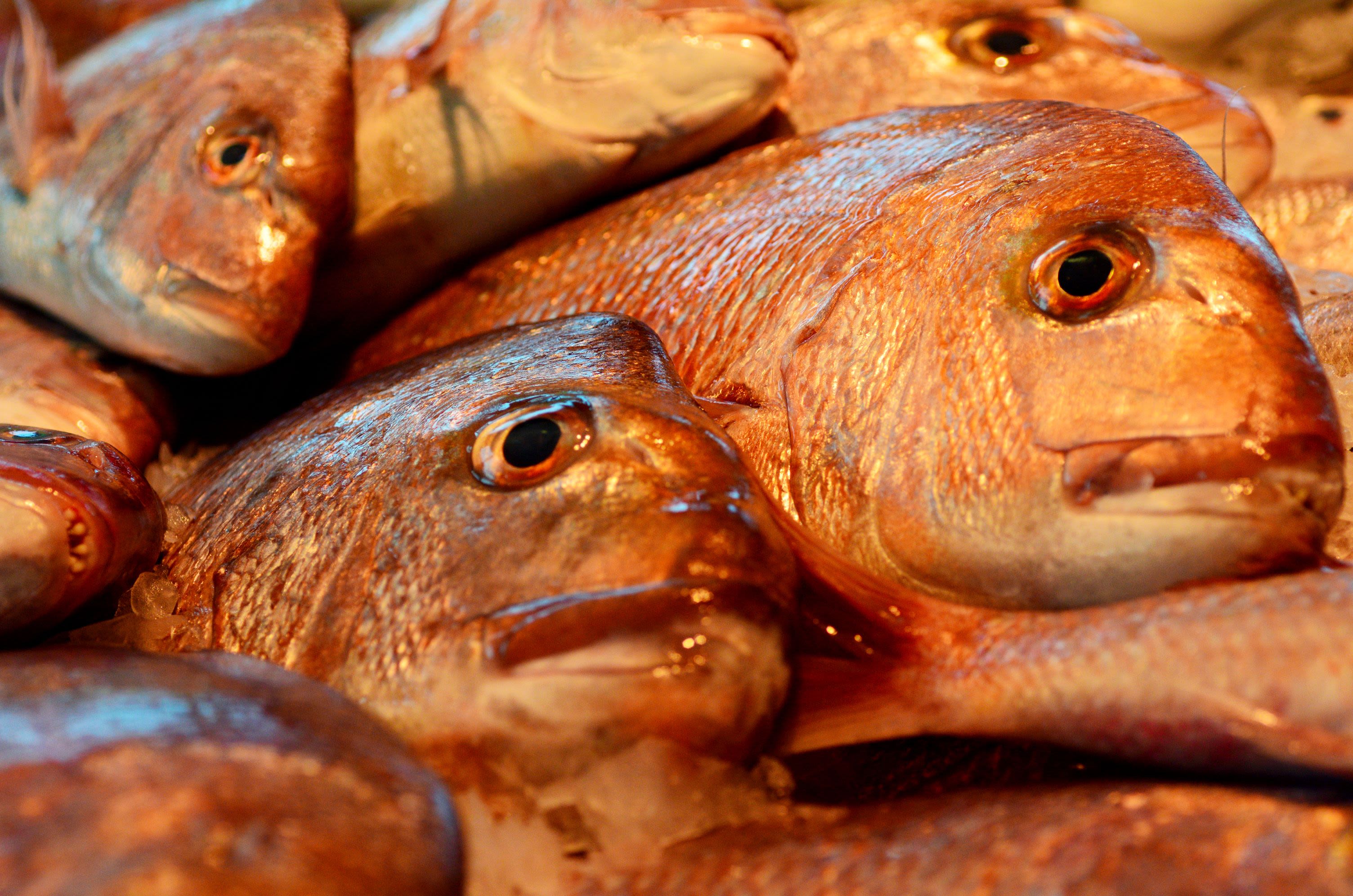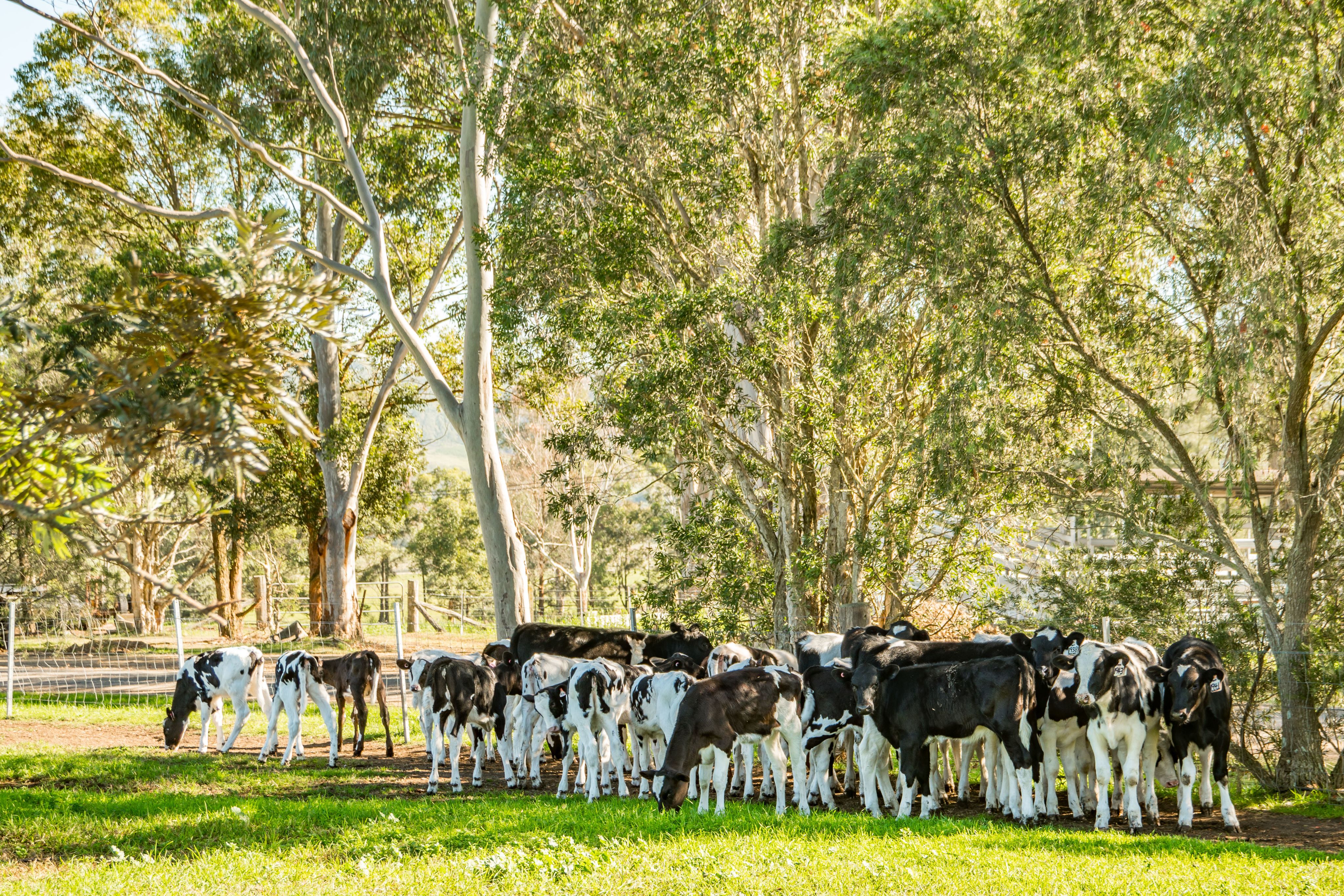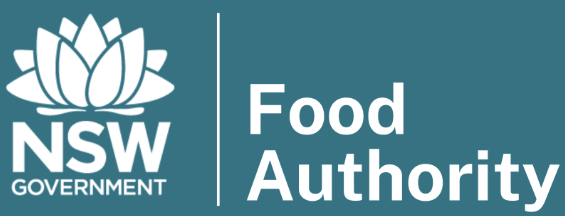Foodwise Summer
Summer 2024 | Issue 70

Foodwise - summer edition
Welcome to the quarterly newsletter from the NSW Food Authority, with the latest information for the NSW food industry.
Highlights in this edition include:
- Have your say: Draft Food Regulation 2025
- Online food handler training now available in Chinese
- New guidance for food businesses on frozen acai
- FRP Workshop 2025 – Registrations now open
- ACCC publishes ‘free range’ labelling guidance for poultry industries for a potential H5N1 outbreak
- Guidance now available for berry, leafy vegetables and melon businesses
Is there something you’d like to see in Foodwise? Let us know at food.contact@dpird.nsw.gov.au or phone 1300 552 406.
Have your say: Draft Food Regulation 2025
The NSW Food Authority is seeking feedback on proposed changes to the state’s food laws.
The NSW Food Regulation is the regulatory framework for the NSW Food Act 2003, which ensures food for sale in NSW is safe to eat.
The Food Authority is proposing the regulation is remade as Food Regulation 2025, with amendments to ensure it is contemporary, effective in reducing foodborne illness and consistent with national food standards legislation.
The draft Food Regulation 2025 and the Regulatory Impact Statement are now available for public comment.
To find out more and have your say, visit www.foodauthority.nsw.gov.au/foodreg2025
Submissions close on Sunday 22 December 2024.
Keeping food safe this festive season
We often see a spike in food poisoning in summer due to larger gatherings, excess foods and unfamiliar cooking that offers the ideal environment for bacterial growth.
Salmonella, a common cause of food poisoning, thrives in the warmer months. Risks increase when food is left out for long periods, or fridges are packed with leftovers meaning the temperature inside rises above 5°C. To ensure an enjoyable festive season, follow the Food Authority’s advice for safe eating:
- Christmas hams will keep for several weeks with proper handling - see Ham hints
- Defrosting, cooking, storing and serving turkey can provide bacteria with 4 different opportunities to spoil Christmas cheer - see Turkey tips
- Seafood needs special care – see Seafood safety
- Cooking large volumes safely can be a challenge – for tips see Family feasts
- If you’re taking food on the road, read our Picnic tips
- BBQs are often the scene of cross-contamination – see BBQ tips
You can also follow these simple tips to make sure your festive season stays festive.
Food Ministers' Meeting
The Food Minister’s Meeting (FMM), chaired by the Hon. Ged Kearney MP, met via video conference on 15 November 2024. The FMM comprises the Australian and New Zealand ministers responsible for food regulation.
Key outcomes from the meeting included discussions on:
- regulation of infant formula products
- regulation of toddler milk
- update on nutrition labelling
- the Health Star Rating system
- The Food Standards Australia New Zealand Workplan
For more detail on each of these outcomes, visit the Food Regulation website.
Old forms go digital
NSW Food Authority is in the process of transitioning many of its PDF/paper-based forms to fillable, online ones.
The latest to go live are new forms to notify in writing of a pathogen detection or residue detection.
Keep an eye on the website as more forms transform.
Sydney Royal Smallgoods and Charcuterie Champ
Congratulations to Stapleton Family Meats Gymea, whose jalapeno and cheddar kransky was named ‘Champion Other Charcuterie Product’ in the 2024 Sydney Royal Smallgoods and Charcuterie Competition presented at the Grape, Grain & Graze Festival in September.
NSW Food Authority is a proud sponsor of the awards, which celebrate excellence and innovation in the fine food industry.
Check out the full results at myras.com.au/res/results/FFResults.aspx?Type=2
Annual Food Testing Report 2023-2024
Ensuring that the food we consume is both safe and correctly labelled is the primary objective for the NSW Food Authority. To support this, regular testing of food products to ensure compliance with regulatory requirements, as part of foodborne illness investigations, and to gather data to identify and respond to food safety issues are conducted.
The NSW Food Authority also undertakes scientific surveillance projects to identify and better understand potential food safety risks. These projects generate valuable data that enable the Food Authority to respond effectively to key concerns, refine prevention strategies, and strengthen food safety systems.
Each year, the Food Authority reports on all testing undertaken. View the Annual Food Testing Report for 2023-2024.
Retail
Online food handler training now available in Chinese
The Food Authority’s popular Food Handler Basics training is now available in 2 new languages: Chinese Simplified and Chinese Traditional.
Food Handler Basics is a free non-accredited course covering the basic knowledge requirements for food handlers under Standard 3.2.2A of the Food Standards Code.
The NSW Food Authority has now issued more than 200,000 certificates for the English version. Arabic, Korean and Vietnamese versions of the training are expected in early 2025. For more, see:
Module 1: Being a food handler.
Module 1: Being a food handler.
Standard 3.2.2A extension concludes
Standard 3.2.2A of the Food Standards Code applies to school canteens, children's services, supermarkets, greengrocers, delis, coffee vendors selling food, correctional centres and boarding schools from 8 December 2024 in NSW.
These businesses were last year granted a 12-month extension to comply with the requirements, which mandate a Food Safety Supervisor, training for food handlers, and being able to prove safe food practices.
The Food Authority website has a wealth of resources to help businesses and organisations understand the standard – visit Standard 3.2.2A Food Safety Management Tools for more information.
New guidance for food businesses on frozen acai
The Food Authority has developed new guidance for food businesses that handle and sell frozen acai.
Frozen acai has been linked to cases of foodborne illness in NSW and must be kept cold to remain safe to eat.
Information on how to reduce food safety risks is detailed in the factsheet: Frozen acai: Guidance for food businesses (PDF, 262 KB).
FRP Workshop 2025 – Registration now open
Planning is well underway for the biennial FRP Workshop 2025 which will be held from 7 to 9 April 2025 at the Amora Hotel Jamison Sydney, and all enforcement agencies’ authorised officers are invited to attend.
Themed 'Outside the square – plating up new perspectives' the FRP Workshop 2025 will extend on the success of the FRP Workshop 2023 to showcase the latest information on food safety, the extraordinary work of councils, facilitate topical discussions, and provide networking opportunities.
The opportunity to attend, provided through the Food Regulation Partnership (FRP), enables enforcement agencies to demonstrate their commitment to supporting authorised officers' professional development in food safety. Attendance is highly encouraged for all EHOs.
The program includes education in food regulation to improve consistency and interpretation of food safety requirements, and the FRP Champion Awards will also be presented at this event.
This event is a must-attend for enforcement agencies’ authorised officers, offering a valuable opportunity to advance the environmental health profession.
Register for the FRP Workshop 2025 here.
Know a leader or innovator in food surveillance practices? Nominate them for the FRP Champion Awards. Nominations have been extended to Monday 16 December 2024 by using the online nomination form.
Save the date: Retail and Food Service Information Session – Yass Valley Council
Are you a retail food business in the Yass Valley or surrounding local government area?
If so, join Yass Valley Council Environmental Health Officers and NSW Food Authority representatives for an informative session on building and maintaining food safety culture in your business to keep food safe and your customers free from foodborne illness.
Date: Tuesday 11 February 2025
Time: 9am – 12.30pm
Venue: Yass Golf Club, 2 Worth Street, Yass NSW.
Find out more and register for the event.
Authorised Officer Food Surveillance Training
The NSW Food Authority recently delivered annual Authorised Officer (Local Government) Food Surveillance Training for officers authorised under the NSW Food Act 2003. This initiative supports councils in ensuring food safety and compliance across their jurisdictions.
Before appointing an authorised officer to conduct food surveillance activities such as food safety inspections, local councils must be satisfied that the person has appropriate qualifications or experience to exercise their functions.
The training program includes 12 online modules and culminates in a one-day, face-to-face workshop. During this workshop, participants hear from Food Authority experts, complete practical exercises, and undertake scenario-based assessments to test their knowledge and skills.
The course aims to:
- Educate and train authorised officers responsible for carrying out food inspection duties (under the Food Act 2003) in accordance with the appropriate policies and procedures.
- Promote consistency between enforcement agencies.
- Provide workforce continuity, helping address skills shortages in the environmental health and food safety area.
This program not only ensures a high standard of food safety enforcement but also prepares a capable workforce to tackle future challenges in the field.
Dubbo hosts Retail and Food Service Information Session
Dubbo Regional Council recently hosted a successful Retail and Food Service Information Session in partnership with the NSW Food Authority, bringing together 77 participants from Dubbo and surrounding regions.
Opened by Dubbo Regional Council CEO Murray Wood, the importance of allergen and pest management, cleaning, sanitising and strategies to prevent foodborne illness were key discussion points.
Sue Runciman, Senior Environmental Health Officer, delivered an engaging presentation focusing on temperature control, including proper thawing, cooking, and storage techniques. Attendees also explored trade waste management and the importance of Food Organics and Garden Organics ( FOGO) initiatives. A practical display by Dubbo Regional Council highlighted the risks of poor temperature control, which included defrosting, and cross-contamination, sparking meaningful discussions among participants.
The session also featured hands-on demonstrations from NSW Food Authority staff on effective cleaning, sanitising, and handwashing, reinforcing the importance of food safety in retail settings.
Held three times a year, these sessions aim to build a strong culture of food safety by connecting local businesses, council EHOs, and the NSW Food Authority. Together, they work to ensure safe food practices to protect customers from foodborne illnesses
Meat
Inspections and audits
From July to September 2024, the NSW Food Authority conducted 874 audits and inspections of licensed meat businesses, resulting in a 1% increase in compliance, compared to the same time last year. Corrective actions relating to analytical testing and the level of preservative use in processed meats were identified and actioned. Poor understanding of the food standards that limit preservative use in processed meats was found to be the contributing factor.
Authorised officers will provide guidance to key stakeholders, industry and regulated businesses and continue to target future compliance activities to address the risks associated with the use of preservative and individual poor performance.
The table below shows comparable data for compliance and audit activity in the meat sector between the same reporting periods in 2023 and 2024.
|
Reporting period |
July - Sept 2023 |
July - Sept 2024 |
|---|---|---|
|
Audits & inspections |
988 |
874 |
|
Compliance rate |
94% |
95% |
Seafood and Shellfish
Inspections and audits
From July to September 2024, the NSW Food Authority conducted 77 audits and inspections of licensed seafood businesses resulting in a 2% decrease in compliance, compared to the same reporting period in 2023.
The Food Authority has moved to a risk based, outcome focused operational model, and consistent with the priority classification scheme for a seafood business (currently P2), audit frequency will remain at a 2-year cycle. Complaints, inspections, and investigations relating to seafood businesses will continue to be managed on an as needs basis.
The table below shows yearly comparable data for compliance and audit activity in the seafood sector between the same reporting periods in 2023 and 2024.
|
Reporting period |
July - Sept 2023 |
July - Sept 2024 |
|---|---|---|
|
Audits & inspections |
89 |
77 |
|
Compliance rate |
98% |
96% |
NSW Seafood Industry Forum
The last Seafood Industry Forum was held on 18 September 2024.
Issues considered via video conference included:
- food safety compliance activities for the 2023-2024 financial year
- white spot response and program update
- biosecurity update – specifically the Biosecurity (Abalone viral ganglioneuritis) Control Order 2024 implemented 24 February 2024 for two years. There are no changes to the Control Order at this stage.
Read the full meeting summary (PDF, 205 KB).
More information about the Forum, including its purpose, functions, and membership, is on the Food Authority website.

Nambucca River oysters: from the waterway to the plate
For the first time since 1983, Nambucca River oyster growers can harvest and directly sell their shellfish, after the NSW Department of Primary Industries and Regional Development rezoned sections of the river.
The rezoning grants direct harvest approval for two of the river’s three zones, enabling locally grown oysters to be sold straight from the waterway.
NSW Shellfish Program Manager Anthony Zammit highlighted the significance of the change, saying it empowers local growers to supply high-quality seafood while boosting the economy, regional jobs, and tourism.
This achievement is the result of a year-long water quality improvement project led by the NSW Environment Protection Authority (EPA).
Key efforts included collaboration with the Nambucca Valley Council to prevent sewage overflows, infrastructure upgrades at local treatment plants, and regular water quality monitoring. These measures significantly improved the river’s environmental health, paving the way for renewed oyster farming activity.
The NSW EPA will continue to work closely with local oyster growers and the council to monitor and improve water quality in the region.
The NSW Food Authority operates the NSW Shellfish Program in partnership with the NSW oyster industry to ensure the safety of shellfish harvested from NSW waters.
Lake Conjola reopens for commercial shellfish harvest after 18-year hiatus
In an exciting development of the local oyster farming industry, the Berringer Lake harvest area in Lake Conjola reopened for harvest on 6 September 2024 – the first time since 2006.
The area had remained dormant for over a decade following the departure of its previous oyster farmer. However, in recent years, an oyster farmer from the Clyde River re-established oyster farming in the area and is now ready to begin harvesting from the estuary.
The harvest not only promises a fresh supply of locally grown oysters but also signals new opportunities for Lake Conjola’s economy and environment.

Dairy
Inspections and audits
From July to September 2024, the NSW Food Authority conducted 177 audits and inspections of licensed dairy businesses. The sector maintained a high compliance rate with 97% of businesses recording an acceptable result. The third party audit (TPA) program for dairy farms also continued to maintain a high standard.
The main audit items attracting Corrective Action Requests during the period were for hygiene and sanitation and food safety program.
The table below shows yearly comparable data for compliance and audit activity in the dairy sector between the same reporting periods in 2023 and 2024.
|
Reporting period |
July - Sept 2023 |
July - Sept 2024 |
|---|---|---|
|
Audits & inspections |
203 |
177 |
|
Compliance rate |
98% |
97% |
Dairy Industry Consultative Committee
The last Dairy Industry Consultative Committee was held on 23 October 2024.
Issues considered via video conference included:
- food safety compliance activities for the 2023-2024 financial year
- an animal welfare update, which included discussion on:
- Livestock Processing Establishment Standards and guidelines
- Virtual fencing.
Read the full meeting summary (PDF, 163 KB)
More information about the Committee, including its purpose, functions, and membership is on the Food Authority website.

Eggs
Inspections and audits
From July to September 2024, the NSW Food Authority conducted 74 audits and inspections of licensed egg businesses. This industry sector has maintained a high compliance rate with 95% of businesses recording an acceptable result.
The Food Authority has moved to a risk-based, outcome-focused compliance model, and consistent with the priority classification scheme for an egg business (currently P2), audit frequency will return to every 2 years. Complaints, inspections, and investigations relating to egg businesses will be managed as needed.
The table below shows yearly comparable data for compliance and audit activity in the egg sector between the same reporting periods in 2023 and 2024.
|
Reporting period |
July - Sept 2023 |
July - Sept 2024 |
|---|---|---|
|
Audits & inspections |
91 |
74 |
|
Compliance rate |
94% |
95% |
ACCC publishes ‘free range’ labelling guidance for H5N1 preparedness
The Australian Competition and Consumer Commission (ACCC) has released new guidance to support the poultry industry in maintaining ‘free range’ labelling of eggs and poultry meat during a potential outbreak of the highly contagious avian influenza H5N1 in Australia.
In the event of a declared H5N1 outbreak, poultry producers may be required to house their animals indoors to prevent further spread of the virus, including to native bird populations. These ‘housing orders’ will be determined by the relevant Commonwealth, State and Territory Chief Veterinary Officers.
The ACCC has advised egg and poultry meat producers affected by a H5N1 government housing order will be able to continue selling their products with ‘free range’ labelling for up to 90 days during a declared outbreak without a risk of enforcement action by the ACCC.
This guidance aims to support both industry continuity and public health protection during potential avian influenza outbreaks.
See ACCC guidance on free range claims for poultry egg and meat during H5N1 Avian Influenza outbreak ( PDF 137.9 KB )
This guidance will only come into effect in the event an outbreak of H5N1 Avian Influenza is declared in an Australian state or territory.
Read more in the ACC's media release (13 November 2024)
For more information about Avian influenza in NSW, visit NSW DPIRD | Avian influenza

Plants
Inspections and audits
From July to September 2024, the NSW Food Authority conducted 33 audits and inspections of licensed plant product businesses resulting in a 1% decrease in compliance, compared to the same reporting period in 2023.
The main audit items attracting Corrective Action Requests during the period were for failing to comply with Food Standards Code and hygiene and sanitation issues.
The table below shows yearly comparable data for compliance and audit activity in the plant sector between the same reporting periods in 2023 and 2024.
|
Reporting period |
July - Sept 2023 |
July - Sept 2024 |
|---|---|---|
|
Audits & inspections |
30 |
33 |
|
Compliance rate |
95% |
94% |
Guidance now available for berry, leafy vegetable and melon businesses
Guidance on new national food safety standards for berry, leafy vegetable and melon businesses is now available on the NSW Food Authority website.
The standards, in effect 12 February 2025, include requirements for notification, traceability, water and fertiliser use, worker knowledge and hygiene, and more.
Businesses with industry food safety scheme certification, such as with Freshcare, GLOBALG.A.P., SQF, or BRCGS, will be recognised as meeting the standards in NSW where compliance is achieved. Verification checks will be undertaken by the Food Authority.
For more information and to subscribe for updates visit the NSW Food Authority website.
Licensing proposed for berries, leafy vegetables and melons
The NSW Government is proposing licensing requirements for NSW berry, leafy vegetable and melon primary production and processing businesses in the draft Food Regulation 2025.
The requirements would be in addition to the national standards.
Industry has an opportunity to provide feedback on the proposed changes through public consultation of draft Food Regulation 2025. More detail on what is proposed in the draft Regulation for berries, leafy vegetables and melons is on our ‘Changes by industry’ webpage.
Vulnerable People
Inspections and audits
From July to September 2024, the NSW Food Authority conducted 270 audits and inspections of licensed hospitals and aged care businesses. Compliance remained high at 98%.
The main audit items attracting Corrective Action Requests (CAR’s) were for pre-requisite programs (failing to correctly implement calibration program) and process control (failure to complete monitoring records at the frequency required in the food safety program).
The table below shows yearly comparable data for compliance and audit activity in the vulnerable persons sector between the same reporting periods in 2023 and 2024.
|
Reporting period |
July - Sept 2023 |
July - Sept 2024 |
|---|---|---|
|
Audits & inspections |
287 |
270 |
|
Compliance rate |
99% |
98% |
TPAs
TPA audit data
Third party auditors (TPAs) conducted 283 audits between 1 July to 30 September 2024 taking an average of 3.2 (972.4 audit hours/283 audits) hours to complete an audit across the six industry sectors TPAs operate in.
All audits attained an acceptable audit outcome.
The table below outlines the results across specific industry sectors serviced by TPAs.
|
Total audits |
Acceptable audits (%) |
Average audit hours |
|
|---|---|---|---|
|
Dairy farms |
28 |
100 |
1.9 |
|
Cold stores |
6 |
100 |
4.1 |
|
Seafood processing |
1 |
100 |
2.0 |
|
Vulnerable Persons |
243 |
100 |
3.6 |
|
Plant products |
4 |
100 |
3.4 |
|
Multi (plant products seafood processing, cold stores) |
1 |
100 |
4.2 |
|
TOTAL |
283 |
100% |
Manufacturing
Integrated plastic packaging ban applies 1 January
NSW food manufacturers can no longer supply certain plastic items as part of packaged food and drinks from 1 January 2025.
The ‘integrated packaging’ ban applies to plastic items packaged through a machine-automated process, such as:
- an expanded polystyrene cup containing soup or noodles with flavouring
- a plastic spoon sealed within packaging of a snack pack
- a sealed plastic straw attached to a juice box.
The bans include items made from biodegradable and compostable plastics and bioplastics.
For more information, including frequently questions, visit the NSW EPA’s Plastics bans and packaged food and drinks page.
Prosecution
Prosecution – The Fraternity Club
A Wollongong dining and entertainment venue has been prosecuted by the NSW Food Authority after serving drinks contaminated with caustic soda to two patrons. The Fraternity Bowling and Recreation Club Ltd in Fairy Meadow, trading as The Fraternity Club, was convicted of four charges under the Food Act 2003 after pleading guilty in Wollongong Local Court.
The company was fined $29,500 and ordered to pay the prosecutor’s costs of $18,000 for offences including non-compliant food handling practices and the sale of unsafe food.
Operators of food businesses that are convicted of offences are published on the Food Authority’s Name and Shame register and remain on the register for a period of two years.
For details of the Fraternity Bowling and Recreation Club Ltd prosecution, see Name & Shame register of Prosecutions.

Processes | Calendar
Processes
Public consultations
Food Standards Australia New Zealand (FSANZ) is seeking feedback on a range of applications to change the Food Standards Code.
For more information see the public consultations page on the FSANZ website.
Calendar items
- Retail Information Session, co-hosted with Yass Valley Council: Yass, 11 February
- 2025 Food Microbiology Conference: Novotel, Sydney Olympic Park, 5-6 March
- FRP Workshop 2025: Sydney, 7-9 April 2025
- Sydney Royal Easter Show: Sydney Olympic Park, 11-22 April
- Food Allergen Management Symposium: Sydney Olympic Park, 20-22 May
Subscribe to news and alerts
Don’t miss a thing! Sign up for our custom email alerts and tips to stay informed on topics that interest you:

















